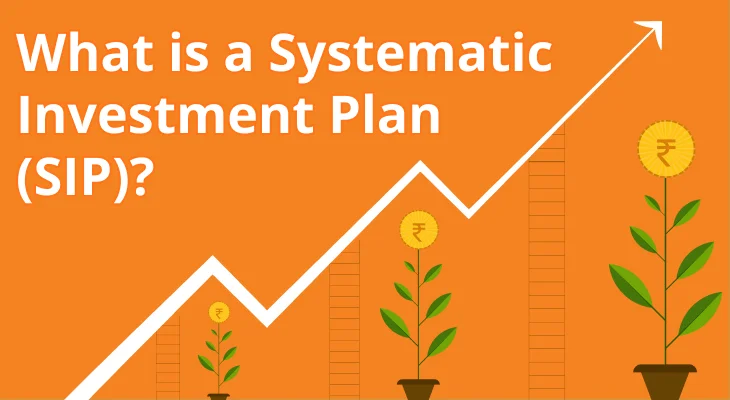What is a Systematic Investment Plan (SIP)?

Retail investors often shy away from the world of investing because they believe that you need a lot of money to start investing in the stock market. And while that may be the case for stocks like MRF Ltd. where you need Rs. 87,880 (as of 29th December 2022) to buy one share, investors often forget that there is a way for them to invest in expensive stocks with just Rs 500. We are referring to Systematic Investment Plans or SIP offered by mutual funds. Popularised by the slogan, ‘mutual funds sahi hai’, India has seen a phenomenal growth in the number of registered SIPs. In fact, as per the Association of Mutual Funds in India (AMFI), the total number of mutual fund SIP accounts in India stood at 6.05 crore with a cumulative value of Rs. 13,306 crore as of November 2022. And while the concept of SIP is fairly straightforward, investors often fail to understand how SIP works and the different types of SIPs they can register. But don’t worry as in this article we will decode everything about systematic investment plans.
What is a SIP?
SIP is an investment approach that allows you to invest in a fund or scheme every month or in regular intervals instead of making lumpsum investment or timing the market. It is very similar to the recurring deposit you open with a bank. In case of an SIP, you give standing instructions to your bank to debit a fixed amount (SIP amount) every month (or as per your chosen frequency) from your account and invest it into the fund of your choosing. SIPs start from as low as Rs 500 (some funds also allow SIP of Rs 100) and can be done weekly, monthly or quarterly.
What are the benefits of an SIP?
By choosing the systematic investment plan route, you get the following benefits:
- Benefit Of Power Of Compounding: Systematic investment plans facilitate the principle of compounding. This means that you earn return on your principal as well as accrued interest amount. To understand the power of compounding, study the below table.SIPTenureReturnTotal InvestmentFuture ValueRs. 5,00010 years12%Rs. 6,00,000Rs. 11,61,695Rs. 5,00015 years12%Rs. 9,00,000Rs. 25,22,880Rs. 5,00020 years12%Rs. 12,00,000Rs. 49,95,740Assuming you start an SIP of Rs. 5,000 growing @12% every year, the value of your investment after 10 years will be Rs. 11.61 lakhs (on an investment of Rs. 6 lakhs). However, if you extend your tenure by 5 years i.e. make an additional investment of Rs 3 lakhs, your SIP future value more than doubles from Rs. 11.61 lakhs to Rs. 25.22 lakhs. Another 3 lakhs and 5 years later, your investment has grown 50% to Rs. 49.95 lakhs. This is the power of compounding.
- Rupee-Cost Averaging: Like shares have current market price, similarly mutual fund schemes have net asset value or NAV. It is the price of one unit of a mutual fund scheme. Assume you start an SIP of Rs 5,000 in Mirae Asset Large Cap Fund – direct plan – growth option from 1st January 2022. The below table shows the monthly units you will receive as per the respective NAV.MonthNAVUnits Purchased01-01-2285.7658.3001-02-2286.2457.9801-03-2281.5661.3001-04-2285.3158.6101-05-2283.1860.1101-06-2280.8861.8201-07-2277.7964.2801-08-2284.6659.0601-09-2285.8658.2301-10-2284.4759.1901-11-2288.4856.5101-12-2291.4554.67Total Units Purchased710.07Notice that in July when the NAV fell to Rs. 77.79 you received 64.28 units whereas in December when the NAV was the highest at Rs 91.45, you received only 54.67 units. So, in effect you receive more units when NAV falls and vice-a-versa. In totality, you received 710.07 units. But what if you had invested the entire Rs. 60,000 (instead of Rs. 5,000 every month for 12 months) on 1st January 2022? You would have received 699.62 units instead of 710.07 units. This is how Rupee-cost averaging works.
- Flexibility And Convenience: One of the reasons why SIP investments are so popular is the flexibility they offer to investors. Not only can you choose the SIP amount but you can also select the period of time you want to continue the investment for. You can also top-up your SIP at a later stage.
- Discipline: A systematic investment plan enables you to invest a fixed amount in a mutual fund of your choice. The responsibility of a regular investment, drives better financial discipline and behavior. If you opt for a monthly SIP, you can set aside a fixed amount from your income through a standing instruction and invest regularly.
- High Potential For Returns: The long-term returns from an SIP investment tend to be higher than most fixed-income investment avenues, for instance fixed deposits.
- Eliminates The Hassle Of Timing The Market: When you invest via an SIP, a fixed amount is debited from your bank account every month (or as per chosen frequency) irrespective of whether the market is up or down. This eliminates the need and hassle of timing the market or sitting on the sidelines whilst you wait for the market to correct.
What are the different types of systematic investment plans?
There are 5 types of SIP that you can opt for:
- Regular SIP: This is the simplest form of SIP where a fixed sum is debited from your bank account as per your chosen frequency and invested in your selected mutual fund scheme.
- Flexible SIP: In the case of flexi SIP, you can adjust or change the SIP amount as per your convenience. This type of SIP gives you greater control over your investment. For instance, you can increase your SIP amount when markets are going down and benefit from Rupee-cost averaging.
- Top-Up SIP: Also known as step-up SIP, you can increase or top-up your SIP amount as you progress. For example, say you start an SIP of Rs. 5,000 in Mirae Asset Large Cap Fund on 1st January 2022. Happy with the fund’s performance you decide to step up your SIP by another Rs. 5,000 in July 2022. You can also time your step-up to coincide with your appraisal cycle.
- Trigger SIP: This type of SIP is triggered when a specific event is triggered. For instance, say you set up a trigger SIP in Mirae Asset Large Cap Fund to be triggered when the NAV falls below Rs. 85. So, whenever the NAV falls below your ‘trigger price’ the SIP will be executed. This is a way of timing the market.
- Perpetual SIP: As the name suggests, this SIP does not have an end or maturity date. It goes on until you give instructions to the fund house to stop the SIP.
If you wish to start investing small amounts of money at regular intervals in a relatively low-risk investment avenue, then a Systematic Investment Plan (SIP) is an excellent choice. With its flexibility, power of compounding, and convenience, you can pursue your financial goals in a systematic manner.




